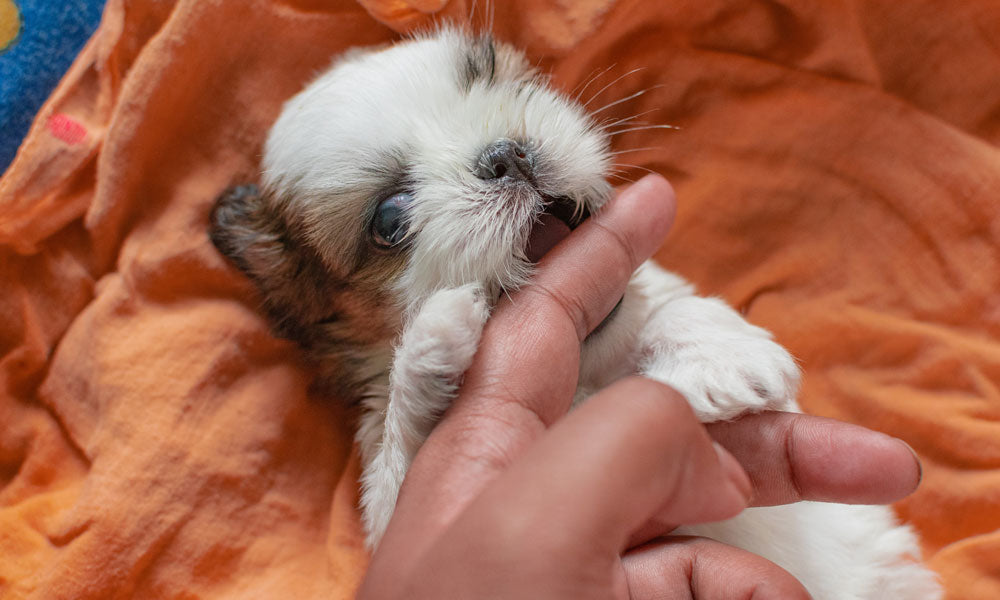
Puppy Love: How to Choose the Right Dog for your Lifestyle
Bringing a puppy into your life can be an exciting and rewarding experience, but it also comes with unique challenges and responsibilities. This week we’re taking a look at how to navigate the journey of getting a puppy, covering everything from selecting the right breed to suit your lifestyle, to the first six months of puppy parenthood.
 Spaniel puppy photo by Kinshuk Bose on Unsplash
Spaniel puppy photo by Kinshuk Bose on Unsplash
Choosing the Right Breed of Dog for You and Your Family
Selecting the right breed is a crucial first step in your puppy journey. Every breed of dog has different temperaments, exercise needs, and care requirements. Here's a breakdown of some popular breeds and their suitability for different types of owners:
- Labrador Retriever: Known for their friendly and outgoing nature, Labradors are excellent family dogs. They can be very energetic, which makes them great for active individuals or families who enjoy outdoor activities. If you’re getting a Labrador as a pet be sure you choose one from a show strain rather than a working strain as they are less demanding and are specifically bred for family life rather than retrieving game birds.
- Golden Retriever: Golden Retrievers are affectionate and gentle, making them fantastic companions for families with children. They're also intelligent and easy to train.
- German Shepherd: This breed is highly intelligent and protective, making them suitable for families seeking both a loyal companion and a watchful guardian.
- Poodle: Poodles come in various sizes (standard, miniature, and toy) and are known for their intelligence and hypoallergenic coat, which means that they are ideal for families with allergies. Poodles have seen a resurgence in popularity recently due to their being used to produce designer crossbreeds including the Cockapoo and Golden Doodle.
- French Bulldog: If you're looking for a smaller breed with a charming personality, French Bulldogs are a great choice. They're adaptable to different living situations, making them suitable for city dwellers.
- Border Collie: Known for their intelligence and agility, Border Collies are perfect for very active individuals or families interested in dog sports and training. Collies can be quite intense and need a lot of exercise and mental stimulation so don’t choose one if you’re more of a couch potato.
- Shih Tzu: Shih Tzus are small and affectionate dogs, ideal for older family members or people living in apartments. They require less exercise but offer wonderful companionship.
Of course you don’t have to choose a pure-bred pet. Cross breeds can make wonderful additions to your family too – but it is advisable to find out what they may have been bred from as this will give you an idea of what to expect in terms of temperament and exercise requirements.
However tempting it might be to choose a dog because of the way it looks, don’t choose style over substance. Getting a dog that suits your personality and energy levels is far more important than getting one that will look good on your Instagram profile. Dogs such as Belgian Malinois and Alaskan Malamutes need lots of exercise and proper training so don’t choose a breed like this unless you have experience and the time to put it into practice.
Also consider checking out your local dog shelter and adopt rather than shop there are lots of lovely dogs out there looking for homes, just make sure that you explain your needs to make sure that the dog you choose is going to fit in well with your lifestyle.
 Shih Tzu puppy photo by Kinshuk Bose on Unsplash
Shih Tzu puppy photo by Kinshuk Bose on Unsplash
Choosing the Perfect Puppy Name
Naming your new puppy can be a challenge. Consider names that are easy to pronounce, that your puppy will easily recognise. Will it be easy to say when you’re in the park calling your dog – and will it stand out so they know that it’s you calling? Also, think about your pup's personality and physical attributes. You might be tempted to choose something cute, like your puppy, but will it still suit them once they are fully grown? It's a name you'll be using for years to come, so take your time to choose the perfect one.
Looking for some inspiration? Closer Mag have 180 cute dog names for your puppy.
And if you’d prefer something a little more unusual for your dog, check out this post from the Daily Paws: 150+ Unique Dog Names that are as One-of-a-Kind as Your Pup.
 French Bulldog puppy photo by freestocks on Unsplash
French Bulldog puppy photo by freestocks on Unsplash
Settling In with Other Pets and Family Members
If you have other pets or family members, a smooth introduction is essential for a harmonious household:
- Introducing to Other Pets: Gradually introduce your puppy to other pets. Start with short, supervised meetings and gradually increase the time spent together. Be patient and watch for signs of stress in both parties. At first it may seem like your cat has their bags packed and is ready to move out but they will come round and will nearly always settle down. – and perhaps even snuggle up with your puppy – over time, just be patient and don’t push things.
- Family Involvement: Ensure that all family members are on the same page regarding training, feeding, and care routines. Consistency is the key to a well-adjusted pup.
- Socialisation: Early socialisation is critical. Make sure that you regularly expose your puppy to various people, animals, and environments to help them grow into a well-rounded and confident adult dog.
 Collie puppies photo by Jametlene Reskp on Unsplash
Collie puppies photo by Jametlene Reskp on Unsplash
What to Expect in the First Six Months
The first six months of puppy parenthood can be both rewarding and challenging:
- Training: Invest time in basic obedience training. Positive reinforcement techniques work best. Housetraining, crate training (if you choose to use one), walking on the lead and teaching basic commands are essential. Also work on leaving your puppy for short periods of time and building this up gradually so that they are happy to be left home alone and do not develop separation anxiety.
- Vaccinations and Health Care: Ensure your puppy receives necessary vaccinations and regular vet check-ups to keep them healthy.
- Teething: All puppies go through a teething phase, when they lose their first set of small, needle-like teeth and develop their adult ones. This phase can be extremely challenging. Provide appropriate chew toys and be patient with any chewing on household items. Don’t get angry with your dog, because they really don’t realise it’s wrong and they can’t tell the difference between a pair of Jimmy Choos and a dog chew. It’s your responsibility to make sure they can’t reach anything precious. At times it can feel like this phase will never end, but we promise you it will, so just make sure you keep any cherished items that they may be tempted to chew, safely tucked out of sight.
- Sleep Patterns: Very young puppies need plenty of sleep, sometimes up to 18-20 hours a day, but you can expect them to be energetic during their waking hours. If your puppy seems to sleep a lot at first, let them rest and make sure that family members respect their sleeping time and wait for them to wake up before trying to engage in any activity.
- Social Development: Continue socialising your pup with different experiences to build their confidence and minimize fear.
- Nutrition: Consult your vet for a suitable diet plan. Puppies have different nutritional needs than adult dogs. Some pet centres may let you try some samples of different types of food. A young pup may have a more sensitive stomach than a full grown dog so be sure to try them on new foods gradually, by mixing new with old at first in order to avoid any tummy troubles.
Bringing a puppy into your home can be a heartwarming experience, but it comes with responsibilities that require patience and dedication. Some people say that it can be even harder than welcoming a new baby! Both can certainly have their moments. But by taking the time to prepare, you'll be well-equipped to provide a loving and nurturing environment for your new furry family member. We truly hope that you will enjoy the journey, as your puppy grows into a loyal and cherished companion for years to come.
